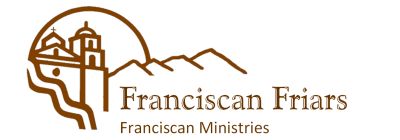Give me someone with Parkinson’s disease, cancer, or a stroke, I told my hospice supervisor, I just can’t handle another person with dementia. This conversation took place in my third year as a hospice volunteer and after the third time I visited Alice. She lived in a small home with six other residents. Alice liked to watch TV. When I showed up, she eyed me in a way that made me feel dismissed and immediately turned back to her TV show. I tried not to be offended. I suggested we turn off the TV and listen to music, which I was told she enjoyed. She said no. I decided to sit quietly and watch tv with her. After a while, another resident nodded her head toward me and asked Alice, “Who is that.” “I don’t know,” she replied with utter disinterest. I was trained to work with people with dementia; I tried all my tricks; I summoned up all my patience; but ultimately, I had to admit that I couldn’t overcome my need to be recognized. I needed a smile, a word, if not recognition of my talents, at least recognition of my presence.
I didn’t dwell on my failure, but I did start to listen more closely when people spoke about their family members with dementia. I noticed a common theme; it was that the person with dementia was in some way disappearing. Unrecognizable as the person they once were, unintelligible in their communications, they were believed to be no longer there, not even to themselves. “He is no longer himself,” they’d say. “There is nothing left of him.” “My mother is gone; she doesn’t even recognize me.”
It is quite a blow when your own mother doesn’t know who you are, and it is quite a sorrow to not recognize your mother when she is sitting right in front of you. It makes me think of the account in the bible of Mary Magdalene coming to the tomb looking for Jesus in John 20:11-16.
Now Mary stood outside the tomb crying. As she wept, she bent over to look into the tomb and saw two angels in white, seated where Jesus’ body had been, one at the head and the other at the foot. They asked her, “Woman, why are you crying?” “They have taken my Lord away,” she said, “and I don’t know where they have put him.” At this, she turned around and saw Jesus standing there, but she did not realize that it was Jesus. He asked her, “Woman, why are you crying? Who is it you are looking for?” Thinking he was the gardener, she said, “Sir, if you have carried him away, tell me where you have put him, and I will get him.” Jesus said to her, “Mary.” She turned toward him and cried out in Aramaic, “Rabboni!” (which means “Teacher”).
In this gospel passage recognition goes both ways. Though Jesus is right in front of Mary, she doesn’t recognize him until he calls her by name. It is only when he recognizes her, that she recognizes him.
Sr. Janet Marie, a Franciscan nun and nurse working with people with dementia suggests that perhaps the person we knew is still there, and with effort, can be recognized, even in their dementia. She writes,
“There is a reason for every behavior, even if your loved one isn’t conscious of it himself. These behaviors have to do with the past and are linked to a desire for something positive, familiar and comforting. For instance, “Jim” would go around the house turning on every faucet and leaving them running. It perplexed his wife until she realized it was related to his experience as a plumber.”
Another example is “Linda” who would insist that she had to leave the nursing home. She would wait by the door, agitating the nurses. Finally, someone asked what she was going to do after she left. Linda replied that she had to feed her children who were waiting for her at home. She was acting out a maternal instinct which was a major part of her adult life.”
Maybe dementia patients aren’t disappearing, maybe seeing them just require paying closer attention, the way Sr. Janet Marie does. I wonder if those with dementia long to be recognized. If rather than focus on my need for recognition, I had focused on recognizing Alice, would things have been different?
When St. Francis was ill and close to dying, he thought back on the young man he once was, a man full of vigor and ready to conquer the world. He longed for that old self as he acknowledged his new limitations. His body was failing him, but what was deep in his heart, his desire to serve God, remained constant. The way he put it to his brothers was, “Let us begin brothers, to serve the Lord God…” Each day was a new day, a new beginning and an opportunity to begin again to pursue what Thomas of Celano describes in The Life of St. Francis as “holy newness.”
Perhaps, disease does not diminish us so much as forces us to discover ourselves in new ways. Perhaps, seeking holy newness in others as they grow old and sick, we will discover that they have not vanished but are still themselves, and also new and holy and transforming.
Reflection Questions:
- Have you ever felt unseen or unrecognized? What was the situation? How did it make you feel?
- Have you ever encountered someone who seemed “to not be there?” How did you respond?
- What does your ministry do to help recognize people others may overlook?
- When and how has your ministry “begun again”? What are some examples of your ministry’s holy newness?









